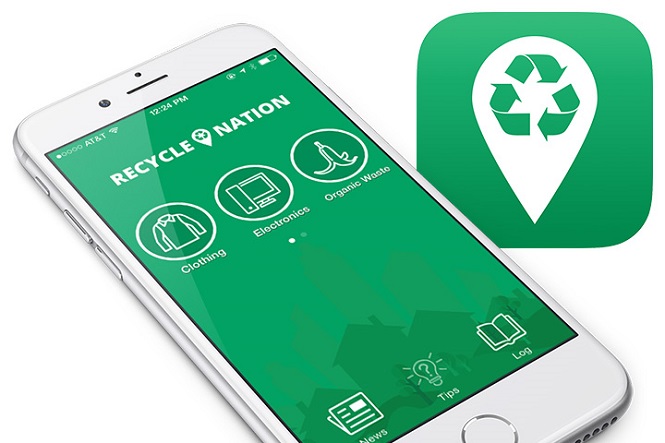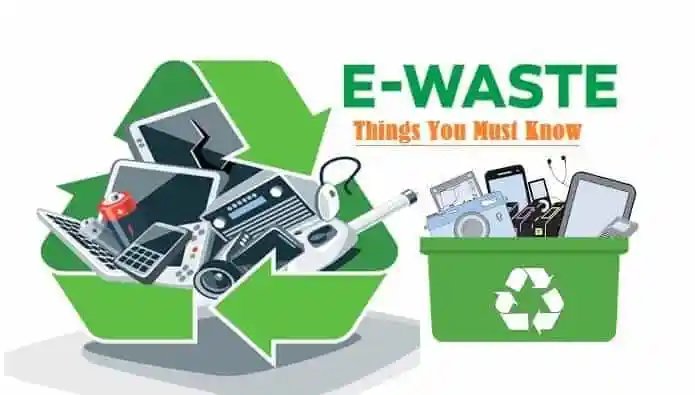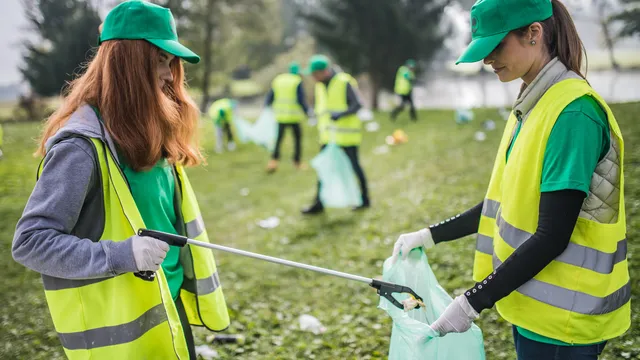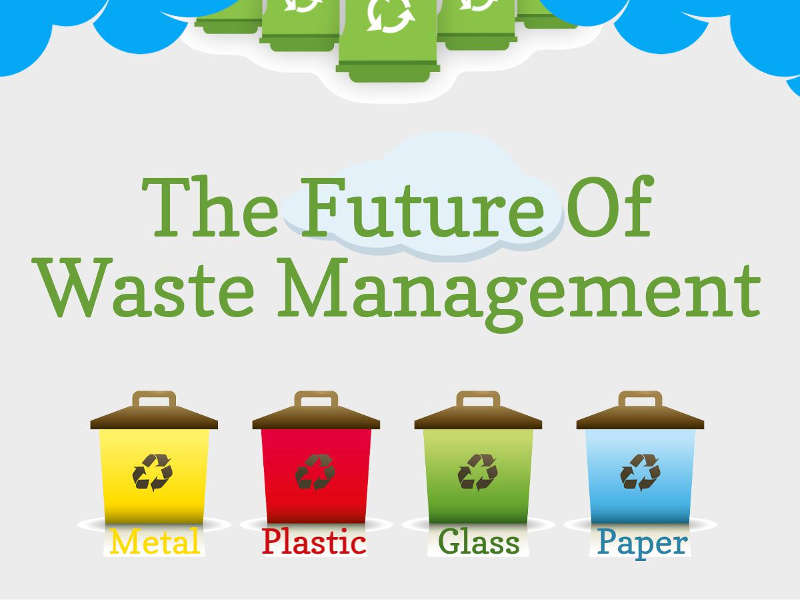Introduction The role of NGOs and nonprofits in waste reduction efforts is crucial in addressing the growing environmental and social impact of waste. This article explores the significance of their involvement and highlights the importance of waste reduction for a sustainable future. Historical Background Waste management has evolved over time, from simple disposal methods to more complex strategies that focus on reducing waste generation and promoting recycling. As waste became a global concern, NGOs and nonprofits emerged as key players in tackling waste reduction. Key Concepts and Definitions To understand the role of NGOs and nonprofits in waste reduction, it…
Author: jenks2026
Introduction Recycling initiatives in underserved communities have gained significant attention due to their potential social impact. This article aims to explore the relevance and importance of studying the social impact of recycling initiatives in underserved communities. Historical Background The history of recycling initiatives in underserved communities can be traced back to the early 20th century. However, it wasn’t until the 1960s when the modern recycling movement began to take shape. The development of recycling initiatives in underserved communities has been influenced by various milestones and events, such as the establishment of recycling centers and the introduction of recycling programs in…
Introduction: In today’s era of growing environmental concerns, sustainable packaging plays a crucial role in addressing these issues. This article aims to provide a comprehensive understanding of sustainable packaging and emphasize the responsibility of manufacturers in implementing sustainable practices. Historical Background: Packaging materials and practices have evolved significantly over time, from simple materials like leaves and animal skins to the modern use of plastics and metals. This article will delve into key milestones and events that have shaped the development of sustainable packaging. It will shed light on the emergence of environmental consciousness and its impact on packaging practices. Key…
Introduction Waste challenges pose significant threats to our environment and human health. This article explores the importance of addressing waste challenges and the relevance of collaboration in overcoming them. Historical Background Over time, waste management practices have evolved to meet the increasing demands of waste generated by human activities. Historical examples of collaboration in waste management, such as early recycling efforts and public-private partnerships, have laid the foundation for effective waste management systems today. Key Concepts and Definitions Collaboration in waste management refers to the collective efforts of various stakeholders to address waste challenges. The waste hierarchy plays a crucial…
Introduction Waste management plays a crucial role in driving innovation and entrepreneurship. This article provides an overview of the importance and relevance of waste management as a catalyst for innovation. It also introduces the main discussion points that will be explored in detail throughout the article. Historical Background Throughout history, waste management practices have evolved significantly. Early civilizations had rudimentary waste disposal methods, often resulting in severe economic and environmental consequences. This section delves into the historical context of waste mismanagement and its impact on society. Key Concepts and Definitions To better understand the relationship between waste management, innovation, and…
Introduction Sustainable cities and waste reduction play a crucial role in achieving environmental goals and promoting a more sustainable future. In this article, we will explore the importance of waste reduction in sustainable cities and the key role local governments play in these efforts. Historical Background Over the years, waste management practices have evolved significantly. From the early days of uncontrolled dumping to modern sustainable waste management strategies, the focus has shifted towards reducing waste and minimizing its impact on the environment. Local governments have played a pivotal role in shaping waste reduction policies and initiatives. Key Concepts and Definitions…
Introduction Recycling plays a crucial role in resource conservation, ensuring the sustainable use of our planet’s limited resources. This article provides an in-depth exploration of recycling, highlighting its importance in current environmental discussions. Historical Background Recycling is not a modern concept; ancient civilizations practiced forms of recycling to reuse materials. As civilizations evolved, recycling practices also developed, particularly during the industrial era. Key Concepts and Definitions To fully understand recycling, it is important to define the concept and explore related ideas. Recycling is the process of converting waste into reusable materials, contributing to the circular economy. This section also delves…
Introduction: Recycling plays a crucial role in reducing waste and pollution, making it an essential solution for addressing the environmental sustainability crisis. By properly sorting and processing waste materials, recycling helps conserve resources and minimize the negative impact on the environment. Historical Background: Recycling has a long history that dates back to ancient civilizations. Evidence of recycling can be traced back to ancient Rome and Greece, where metal scraps were melted down and reused. Over time, recycling practices have evolved to include a wider range of materials such as paper, glass, plastics, and electronic waste. Today, recycling has become an…
Introduction Recycling plays a crucial role in conserving energy by reducing the need for energy-intensive extraction and processing of raw materials. This article explores the historical background of recycling and its connection to energy conservation. Historical Background Recycling has a long history, dating back to ancient civilizations that reused materials. However, it gained significant attention in the 20th century due to growing concerns about resource depletion and environmental degradation. Key Concepts and Definitions Recycling refers to the process of converting waste materials into reusable materials. It plays a vital role in waste management by reducing the volume of waste sent…
Introduction: The concept of a circular economy revolves around creating a sustainable future through recycling. This article explores the relevance and importance of adopting a circular economy approach and why this topic is worth exploring. Historical Background: To understand the evolution of the circular economy, it is essential to examine its historical development. Throughout history, recycling practices have evolved, contributing to the concept we know today. Key Concepts and Definitions: At the core of the circular economy lies the idea of sustainability. This article defines and explains the circular economy, highlighting the importance of sustainable practices. Additionally, key terms and…
Introduction: Sustainable waste management plays a crucial role in businesses today, as organizations strive to minimize their environmental impact and contribute to a more sustainable future. This article provides an exploration of sustainable waste management, examining its importance, historical background, key concepts, current trends, case studies, challenges, and future outlooks, highlighting the significance of businesses adopting sustainable waste management practices. Historical Background: Over time, waste management practices in businesses have evolved significantly. Initially, waste disposal was often a haphazard process, with little consideration for environmental consequences. However, as environmental awareness grew, businesses began shifting towards more sustainable practices. This transformation…
Introduction Smartphone apps have revolutionized the way we locate recycling centers, making it easier than ever before. This article delves into the relevance and importance of using smartphone apps to promote sustainable waste management. Historical Background Recycling has undergone significant developments over the years, and smartphone apps have emerged as a powerful tool in this field. These apps have evolved to meet the growing demand for sustainable practices, enabling users to locate recycling centers conveniently. Key Concepts and Definitions To comprehend the significance of smartphone apps for recycling, it is crucial to define key terms such as recycling, waste management,…
Introduction E-waste recycling is a crucial process that involves the responsible disposal and recycling of electronic waste. This article aims to provide a comprehensive beginner’s guide to e-waste recycling, exploring its importance and the need for understanding this topic. Historical Background Electronic waste has become a pressing global issue due to the rapid advancement of technology and the increasing consumption of electronic devices. Improper disposal of e-waste over the years has led to environmental pollution, health hazards, and the depletion of natural resources. Understanding the historical background of e-waste and its implications is crucial to finding effective solutions. Key Concepts…
Introduction The topic of waste management is of paramount importance in today’s world due to its impact on environmental sustainability and public health. Local governments play a significant role in waste management as they are responsible for implementing and enforcing policies and practices to ensure effective waste handling within their jurisdictions. This article aims to provide a comprehensive understanding of waste management by exploring its historical background, key concepts, main discussion points, case studies, current trends, challenges, controversies, future outlook, and the overall importance of local governments’ role in this field. Historical Background Over the course of history, waste management…
Introduction Waste-to-energy technologies play a crucial role in addressing the pressing issues of waste management and energy production. With the ever-increasing global waste generation and the growing demand for sustainable energy sources, these technologies offer a viable solution. This article aims to explore the significance of Waste-to-energy technologies in the context of environmental sustainability and renewable energy, while also emphasizing the need to understand their environmental impact. Historical Background The development and evolution of Waste-to-energy technologies have a rich history. Over the years, these technologies have undergone significant advancements and breakthroughs. From the early experiments with incineration in the 19th…
Introduction Zero waste living is a lifestyle that aims to minimize waste generation and promote sustainable practices. By reducing, reusing, recycling, and composting, individuals and communities can significantly decrease their environmental footprint. This concept is gaining traction as individuals recognize the importance of conserving natural resources and mitigating climate change. In this article, we will explore the historical background, key concepts, benefits, strategies, implementation, case studies, trends, challenges, and future outlook of zero waste living. Historical Background The Zero Waste movement traces its roots back to the 1970s when environmentalists began questioning the traditional waste management system. Influential figures and…
Introduction Food waste reduction is a critical issue that both households and restaurants need to address. It not only has a significant impact on the environment but also has economic implications. Wasted food contributes to greenhouse gas emissions and squanders valuable resources such as water and energy. Additionally, the economic cost of food waste is substantial, with households in the United States alone wasting around $161 billion worth of food each year. Likewise, restaurants face financial losses due to food waste. Therefore, implementing effective strategies to reduce food waste is paramount. Historical Background Understanding the historical context of food waste…
Introduction Waste management plays a crucial role in modern society, ensuring the proper disposal and treatment of waste materials to protect the environment and public health. With the growing concerns over the impact of waste on our planet, exploring the future of waste management has become an area of great interest. This article delves into the historical background, key concepts, and current trends in waste management, while discussing the challenges and solutions that pave the way for a sustainable future. Historical Background Waste management practices have evolved significantly throughout history. Each era has contributed to shaping waste management approaches, from…
Introduction In today’s world, the concept of sustainable packaging has gained significant importance. As concerns about the environment continue to rise, it has become crucial to address the issue of waste generated from packaging. Sustainable packaging focuses on minimizing the environmental impact of packaging materials and reducing waste throughout the entire lifecycle of a product. This article will explore the various aspects of sustainable packaging and its relevance in promoting a greener and more sustainable future. Historical Background The history of packaging is closely intertwined with the rise of unsustainable practices. In the past, packaging materials were often designed for…
Introduction The fashion and textile industry has a significant impact on the environment, and as consumer demand continues to grow, addressing its environmental consequences becomes more crucial. Recycling practices have emerged as a crucial solution to mitigate the environmental impact of fashion and textile production. This article explores the importance and relevance of recycling in this industry. Historical Background The fashion and textile industry has a long history, but it was not until recent decades that the environmental implications became apparent. The rise of fast fashion and mass production has led to increased resource consumption, waste generation, and pollution. Early…





















